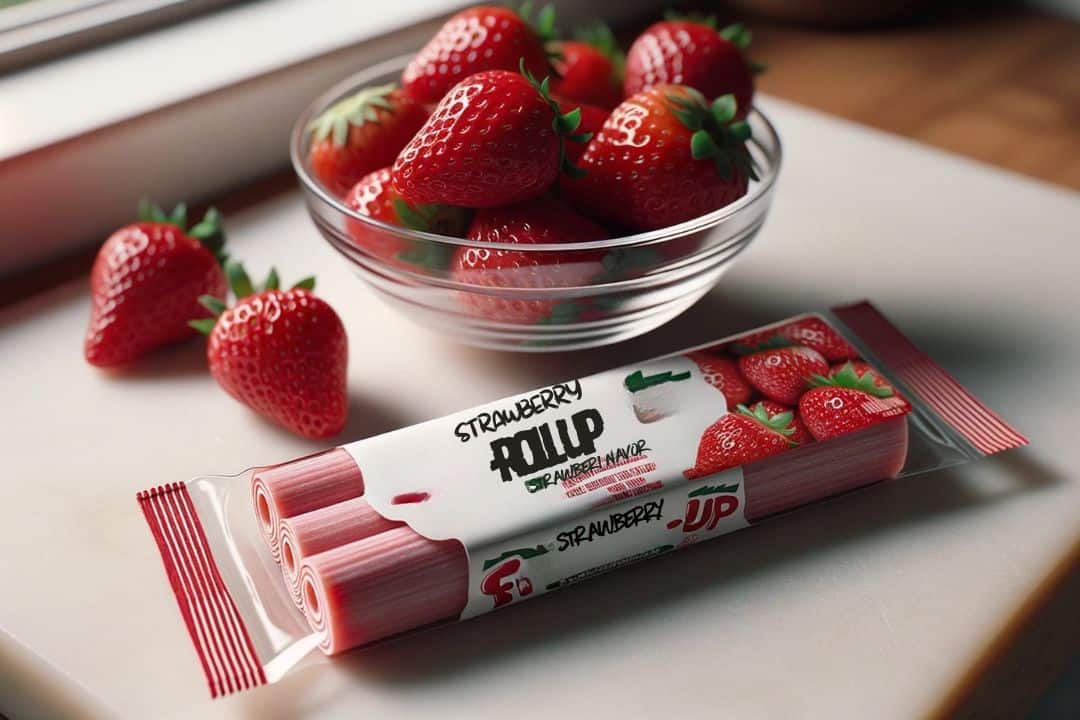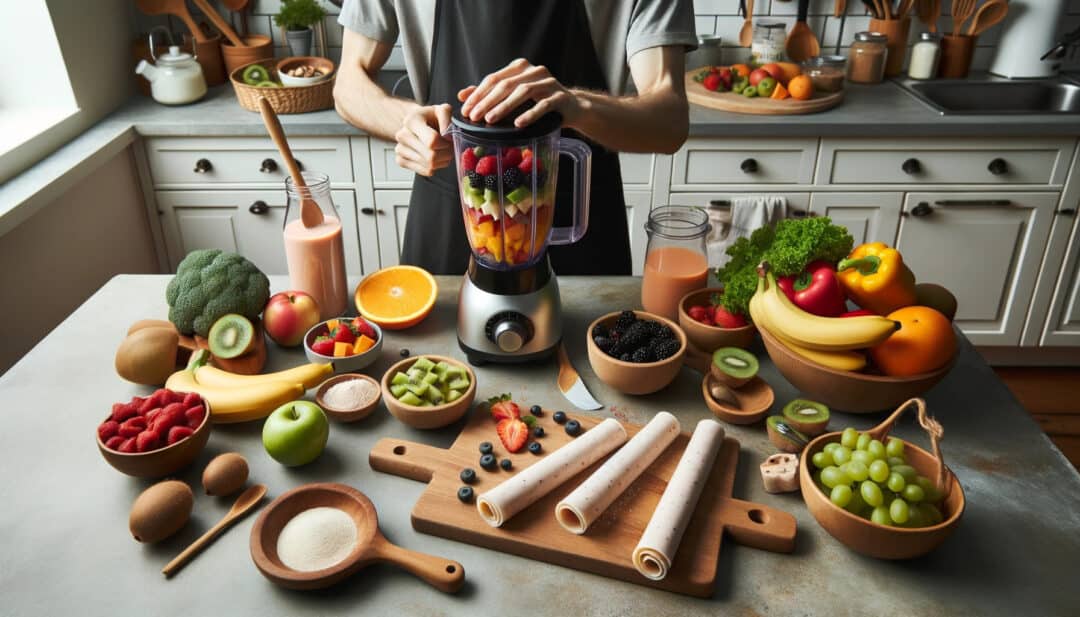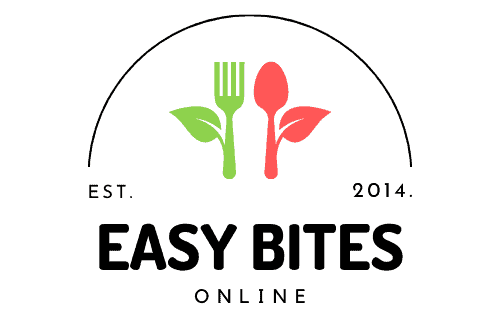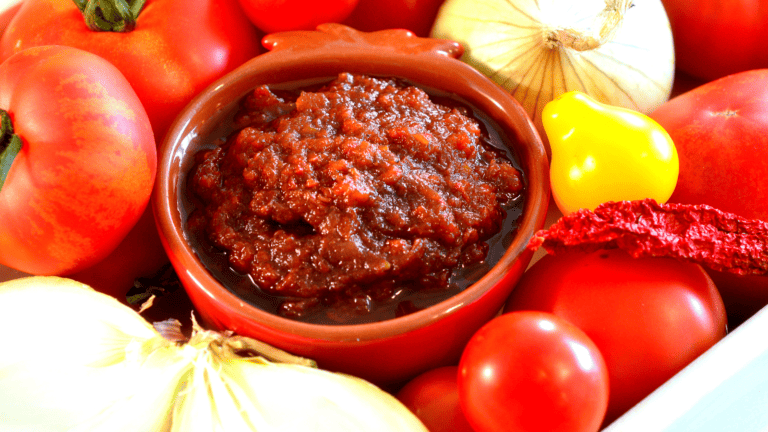Are Fruit Roll Ups Vegan? (2023 Update)
Are Fruit Roll Ups Vegan? A popular fruit snack that has been a favorite for many has been the subject of debate within the vegan community regarding its vegan status.
General Mills, the company behind the Betty Crocker brand, which manufactures Fruit Roll-Ups, lists several ingredients in the snack.

Among these are citric acid, ascorbic acid (vitamin C), sodium citrate, malic acid, and fruit juice. However, some gray areas arise when considering certain ingredients, such as white sugar.
Some sugar is processed using bone char derived from animal bones, raising concerns about animal cruelty and the use of animal by-products.
Moreover, ingredients like acetylated monoglycerides can have both plant- and animal-based sources. The uncertainty around such ingredients makes it challenging for dietary vegans to ascertain the vegan status of Fruit Roll-Ups.

Some online retailers and convenience stores might label them vegan, but one must be cautious and thoroughly research. It’s worth noting that some flavors of Fruit Roll-Ups, such as tropical tie-dye or strawberry flavor, might seem purely fruit-based. They might contain artificial colors and other ingredients sourced from animals.
Understanding Gelatin Controversy in Fruit Roll-Ups
The controversy surrounding gelatin in fruit roll-ups has sparked a debate among vegans and those seeking animal-free food options. Many people are looking for alternative products that do not contain animal-derived ingredients, such as foods made with mango.
It’s important to shed light on this issue and understand why gelatin, derived from animal products, concerns vegans who avoid animal foods.
Analyzing Concerns for Vegans
Gelatin, derived from animal collagen, is a common ingredient in many fruit snacks, including strawberry fruit roll-ups. Vegan alternatives made with vegan ingredients are available for those who avoid animal products.
This poses a problem for individuals following a vegan lifestyle as it involves using animal byproducts, such as monoglycerides found in mango fruit roll ups.
The Non-Vegan Implications of Gelatin
Obtaining gelatin, a common ingredient in many products, involves boiling the skin, bones, and connective tissues of animals such as cows or pigs. However, alternatives like mango can be used for those who prefer vegan consumption or need vegan options.
This method contradicts the principles of veganism, which advocates against any form of animal exploitation or cruelty, including the use of monoglycerides in mango fruit roll ups. As a result, many vegans avoid products containing gelatin, such as fruit roll ups, altogether due to monoglycerides.

Vegan Alternatives
Fortunately, alternatives are available that cater to the needs of vegans who still want to enjoy fruit snacks like strawberry roll-ups without monoglycerides. Some companies have started producing vegan-friendly fruit roll ups using plant-based ingredients like agar-agar or pectin instead of gelatin.
Making Informed Choices
To determine whether a specific brand or product, such as fruit roll ups, is vegan-friendly, it’s essential to read the ingredient list carefully. Look for terms like “gelatin” or “animal-derived” ingredients in fruit roll ups that indicate non-vegan status.
Analyzing Ingredients and Manufacturing Process of Fruit Roll-Ups
Delving into Ingredients and Vegan-Friendliness
Examining the ingredients used in strawberry fruit roll-ups is crucial to determining whether they are vegan. The ingredient list can provide valuable insights into the vegan-friendly nature of fruit roll-ups, these popular snacks.
When scrutinizing the ingredients list of fruit roll-ups, some key components might raise concerns for those following a vegan lifestyle. These questionable ingredients include refined sugar, corn syrup, pear puree concentrate, and homemade vegan fruit roll ups.
It’s important to consider vegan options and promote vegan consumption.
Examining the Manufacturing Process
In addition to analyzing the ingredients, understanding the manufacturing process is essential in determining whether strawberry fruit roll-ups align with a vegan diet.
The method of vegan consumption plays a significant role in defining the characteristics of fruit roll ups.
During production, fruit roll-ups undergo a specific manufacturing process that involves heating and dehydrating fruit puree. This process aims to remove moisture from the puree, resulting in chewy roll ups with a texture similar to traditional fruit leather.
Key Concerns for Vegans
For vegans, two primary concerns arise when assessing strawberry fruit roll-ups: refined sugar and pear puree concentrate.
Refined sugar is often used to enhance the sweetness of fruit roll ups. However, some vegans prefer to avoid refined sugars, including fruit roll ups, due to their potential animal-based processing methods.
Pear puree concentrate, like fruit roll ups, may also pose an issue for strict vegans as its sourcing and processing methods may vary among manufacturers. It is essential for individuals following a vegan lifestyle to research specific brands’ practices thoroughly before consuming fruit roll-ups.
By carefully examining the ingredients used in strawberry fruit roll ups and their manufacturing process, one can make informed decisions regarding their compatibility with a vegan diet.
Exploring Vegan-Friendly Alternatives to Gelatin in Fruit Snacks
In the quest for vegan-friendly fruit snacks, finding alternatives to gelatin, such as roll ups derived from animal products, is essential. Luckily, several plant-based roll ups options commonly used in place of gelatin can satisfy your fruity snack cravings.
Highlighting alternative ingredients for vegan fruit snacks
Manufacturers often turn to various vegan ingredients. Here are some popular alternatives:
- Fruit Pectin: This natural substance found in fruits acts as a gelling agent and is commonly used in making jams, jellies, and roll ups. It provides a texture similar to gelatin without animal-derived components, making it a great alternative for those who enjoy fruit roll-ups.
- Agar: From seaweed, agar is another common substitute for gelatin in fruit roll-ups. It has excellent gelling properties and works well in fruit snacks like gummies, roll ups, or fruit leather.
- Vegetable Gums: Ingredients such as guar gum, xanthan gum, or locust bean gum can be used as binders or thickeners in vegan fruit snacks like roll ups. Fruit roll ups help create the desired texture without compromising on taste.
Creating gelatin-free options for vegans
Manufacturers have been catering to the growing demand for vegan compliance by offering a range of delicious fruit roll ups made without gelatin. Here’s how they achieve this:
- Using Fruit Puree for Roll Ups: Pureed fruit is the base ingredient for many vegan-friendly fruit roll ups. The fruit roll ups puree provides flavor and natural sweetness while acting as a binding agent.
- To enhance the taste of these fruity roll ups, manufacturers often incorporate natural flavors derived from fruits or plants rather than relying on artificial additives.
- Food Colorings: Instead of synthetic dyes, naturally sourced fruit roll ups like beet juice or spirulina extract give the snacks their vibrant hues.
- Sweeteners: Vegan fruit roll ups are sweetened with alternatives like cane sugar, maple syrup, or agave nectar, avoiding refined sugars.
By incorporating these vegan-friendly ingredients and techniques, manufacturers can create delicious fruit roll ups that cater to the needs of vegans while still providing a burst of fruity goodness.
Debunking Myths: Health and Nutrition of Fruit Roll-Ups
Dispelling Misconceptions
Strawberry fruit roll-ups have long been a popular snack choice, especially among kids. However, there are several misconceptions surrounding the healthiness and nutritional value of fruit roll ups that need to be addressed.
One common misconception is the belief that fruit roll-ups are equivalent to consuming whole fruits. While fruit roll ups may contain some fruit puree or concentrate, it’s important to note that they undergo a processing method that removes much of the original nutrients found in fresh fruits.
Fact vs Fiction
Let’s separate fact from fiction.
Sugar Content: One concern often raised is the high sugar content of fruit roll-ups. These snacks are known for their sweet taste and high sugar levels. Many commercial fruit roll-ups contain added sugars, which can contribute to various health issues when consumed excessively.
However, healthier options are also available with reduced sugar or no added sugars, such as fruit roll ups.
Artificial Additives: Another worry revolves around artificial additives commonly used in fruit roll-ups to enhance flavor and extend shelf life. While some brands of fruit roll ups do include these additives, others take a more natural approach by using only real ingredients without any artificial flavors, colors, or preservatives.
Overall Nutritional Profile: Critics argue that strawberry fruit roll-ups lack essential nutrients compared to whole fruits. While it’s true that roll ups may not offer the same level of vitamins and minerals as whole fruits, some brands have started incorporating additional nutrients into their roll ups to improve their nutritional profile.
The Bottom Line
It’s essential to make informed choices based on individual dietary needs and preferences, including options like fruit roll ups. While roll ups may not be a perfect substitute for whole fruits due to processing methods and potential additives, healthier alternatives are available with reduced sugar content and more natural ingredients.
Whether you choose to enjoy fruit roll ups occasionally as a fun treat or opt for healthier fruit roll ups options, it’s important to remember that moderation is key. As with any snack, balance and variety are crucial for maintaining a well-rounded diet. This applies to fruit roll ups as well.
Unveiling Vegan Options: Strawberry, Jolly Rancher, and Sour Fruit Roll-Ups
If you’re a vegan looking for a fruity and delicious snack, you might wonder if strawberry fruit roll-ups are vegan-friendly. The good news is that specific varieties of strawberry, Jolly Rancher, and sour-flavored fruit roll-ups have been confirmed to be vegan.
Specific Vegan Options
Popular brands such as Strawberry Fruit Roll-Ups, Jolly Rancher Fruit Roll-Ups, and Sour Fruit Roll-Ups offer vegan options for those who follow a plant-based diet. These fruity roll ups are perfect for vegans who want to enjoy a tasty snack while staying true to their dietary choices.
Availability of Vegan-Friendly Varieties
Vegan-friendly fruit roll-ups are becoming more widely available in stores and online. You can find fruit roll ups in different flavors like strawberry, Jolly Rancher, and sour. So whether you prefer the classic sweetness of strawberry or the tangy twist of sour fruit roll ups, there’s a vegan option.
Ingredients to Cater to Different Preferences
To cater to various preferences and dietary needs, these vegan fruit roll-ups use real fruit or natural ingredients to achieve their flavors. For example, some brands may include pear puree or other organic fruits, such as roll ups, in their ingredient list.
This ensures you can enjoy the fruity taste of roll ups while adhering to your vegan lifestyle.
Verdict on Whether Fruit Roll-Ups are Vegan or Not
After thoroughly examining the gelatin controversy surrounding fruit roll-ups and analyzing their ingredients and manufacturing process, it can be concluded that traditional fruit roll-ups containing gelatin are not vegan-friendly.
Gelatin, derived from animal collagen, is not vegan-friendly and cannot be used in fruit roll ups. However, there are vegan alternatives available in the market that provide similar fruity flavors without animal-derived ingredients.
Exploring vegan-friendly options, we discovered that strawberry, Jolly Rancher, and sour fruit roll-ups offer delicious alternatives for individuals seeking plant-based snacks.
These vegan fruit roll ups options are made without gelatin and utilize plant-based ingredients to achieve the desired texture and taste. Vegans can enjoy the fruity goodness of fruit roll-ups without compromising their dietary choices by opting for these alternatives.
In conclusion, if you follow a vegan lifestyle or have dietary restrictions regarding animal products, it is essential to read product labels carefully before purchasing fruit roll-ups.
Look for fruit roll ups varieties that explicitly state they are vegan or do not contain gelatin. By being mindful of your choices and opting for vegan-friendly alternatives like strawberry, Jolly Rancher, and sour fruit roll-ups, you can continue to indulge in these tasty treats guilt-free.

FAQs – Are fruit roll ups vegan?
Are all fruit roll-ups non-vegan?
👉 No, not all fruit roll-ups are non-vegan. While traditional fruit roll-ups often contain gelatin derived from animals, making them unsuitable for vegans, several brands now offer vegan-friendly fruit rollups made with alternative ingredients.
What other ingredients should I look out for in non-vegan fruit roll-ups?
👉 Apart from gelatin, a common non-vegan ingredient in many fruit snacks, including some fruit roll-up brands, it’s important to check for other animal-derived additives such as honey or certain food colorings like carmine (derived from insects).
Can I find vegan fruit roll-ups in local grocery stores?
👉 Yes, many grocery stores now carry a variety of vegan fruit roll-up options. Look for fruit roll-up brands that mention being vegan or do not contain gelatin and other animal-derived ingredients.
Are there any homemade recipes available for vegan fruit roll-ups?
👉 Absolutely! Numerous online recipes allow you to make vegan fruit roll-ups using natural ingredients like pureed fruits, plant-based sweeteners, and thickeners like agar-agar or pectin.
Can children with dietary restrictions enjoy vegan fruit roll-ups?
👉 Vegan fruit roll-ups can be an excellent option for children with dietary restrictions. However, it’s always important to check the ingredient list to ensure no allergens or additives may be unsuitable for your child’s specific needs.
Are Fruit Roll Ups Vegan?
A popular fruit snack, Fruit Roll-Ups, has sparked discussion about its status in the vegan community. General Mills, the company behind Fruit Roll-Ups, lists ingredients such as citric acid and ascorbic acid.
However, concerns arise with ingredients like white sugar, which may be processed using bone char. Additionally, ingredients like acetylated monoglycerides can have both plant- and animal-based sources, adding to the uncertainty.
For more on this, explore the details about citric acid’s vegan status.
Can a vegan diet provide enough protein?
👉 Yes, a vegan diet can provide sufficient protein if it includes a variety of plant-based protein sources. Unlike animal-based proteins, many plant proteins are not ‘complete’ proteins, meaning they do not contain all essential amino acids.
However, vegans can ensure they get all the essential amino acids their body needs by consuming various plant-based protein sources such as beans, lentils, peas, soy products (like tofu and tempeh), and whole grains.
It’s also a myth that these foods must be eaten together at every meal; as long as a variety of these protein sources are consumed throughout the day, the body’s protein requirements can be adequately met. For more detailed information, refer to this research article.

Born and raised in a family of foodies, Georgia’s passion for cuisine was nurtured from a young age as she learned the intricacies of flavor and texture from her grandmother’s kitchen. As an adult, this early fascination blossomed into a full-fledged love affair with the culinary world.







